QuestionWe really need some advice about a backyard pond. We just rented a home that had a pond, the dimensions are approximately 3ft by 5ft. It might be 2.5ft deep in certain areas. The pond doesn't have a pump or any aerator system and homeowners left no instructions other than food. We've lived here for about a month and have added water to the pond as necessary since it has been hot and the water evaporates but never more than inch at a time. Last night we had a very bad storm and this morning when we checked the pond all of the fish except two were dead. Any ideas what could be going on? There were approximately four koi that were about 4inches long and about ten small 1inch koi babies that all died. The only two fish that lived were about 3inches long and they look more like goldfish than koi. What do we need to do to make the pond safe for the two fish that didn't die? Right now we have them in an aquarium inside until we figure out what is going on with the pond. Any advice you could offer would be appreciated.
AnswerThere are several biological and chemical processes that occur in pond water. The ultimate result we seek is for any nitrogen based compound to fully react into its final state of nitrates, and then hopefully nitrogen gas that escapes the pond through surface gas exchange. This keeps toxic compounds from building, and oxygen is very important to this process. The other result is for there to be a mineral balance that maintains an adequate hardness, both general and alkalinity, that is both best for the fish and best for the aforementioned process involving nitrogen. This is directly related to pH.
When one compound/mixture is introduced to another, they find a pK value that is based on both of their buffering capacity. In a stagnant body of water with living organisms, the buffering ability (hardness) of the water is used up and any additional compound/mixture will cause the observed pH to shift dramatically. This sudden (or minor but frequent) change in pH does not agree with the fish, and in addition to a high ammonia concentration is usually fatal.
My advice is:
_ Get a pump large enough to circulate the water 2x per hour (~500gph)
_ Test pH twice, 12 hours apart
_ Test Ammonia
_ If Ammonia is higher than 1.5ppm, perform a 30% water change
_ If difference of pH readings are more than 0.25, add a mesh bag with about 1/2 lb crushed coral skeleton (this will raise the alkalinity, which you should test often as well)
_ A biological filter is important if you plan to have fish, but is not necessary
_ Make sure you dechlorinate the water you use to refill the pond, unless it is well water, in which case you should get it analyzed to make sure it is not nutrient-rich. Nutrient-rich water leads to algae, always!
-Pond maintenance, like most hobbies, is a money pit and should only be pursued if you think you might enjoy it (who wants to spend money on something you won't even enjoy?)
-You always have the option of draining and filling/covering/just not using it if your lease mentions nothing about it. You can also easily make it a plant-only water garden as fish ownership is the most complicated, time consuming part of a pond.
-Feel free to ask me any more questions you have along the way as there are volumes of information that I haven't shared pertaining to specific areas of pond maintenance.

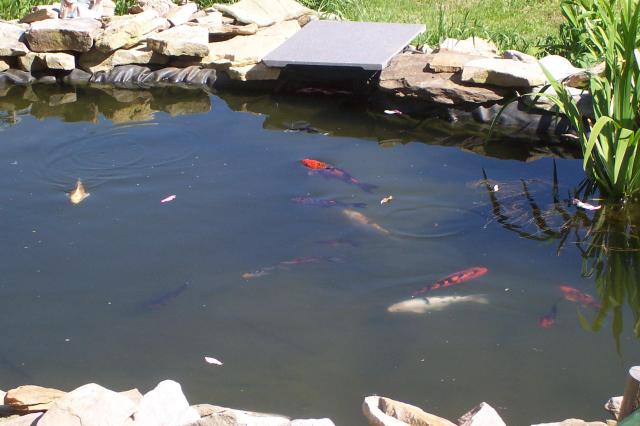 harsh winters
QuestionBefore the Herons
QUESTION: My local Pon
harsh winters
QuestionBefore the Herons
QUESTION: My local Pon
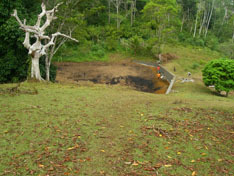 Cement to Clay..?
QuestionCement Dam
QUESTION: My question is in r
Cement to Clay..?
QuestionCement Dam
QUESTION: My question is in r
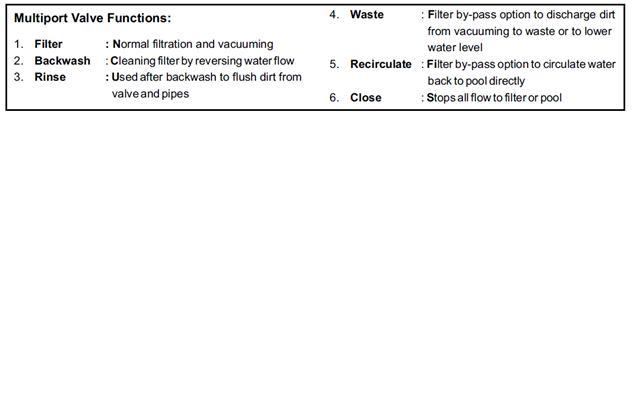 pond trouble
QuestionMe and my husband just bought a home with a pon
pond trouble
QuestionMe and my husband just bought a home with a pon
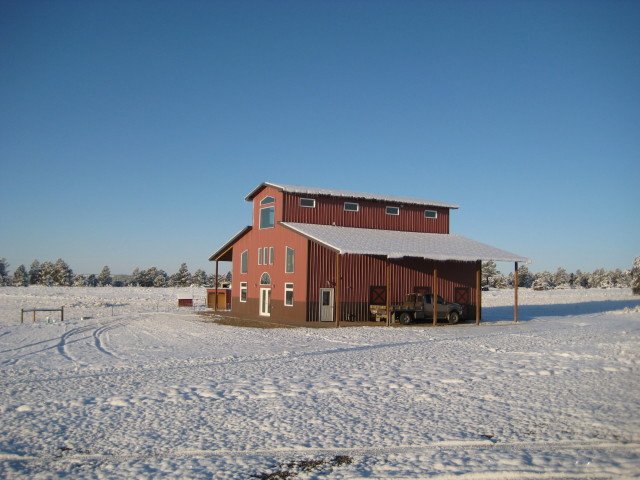 pH problems
QuestionQUESTION: Thank you for offering this service.
pH problems
QuestionQUESTION: Thank you for offering this service.
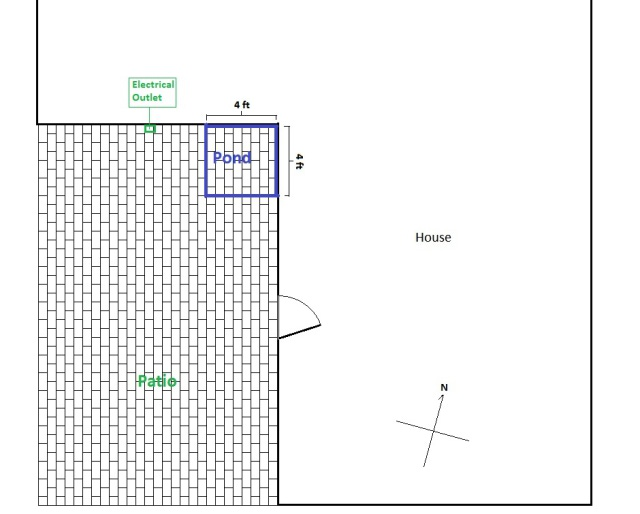 Help with building patio pond.
Question
diagram
I live near St. Louis, Missouri
Help with building patio pond.
Question
diagram
I live near St. Louis, Missouri